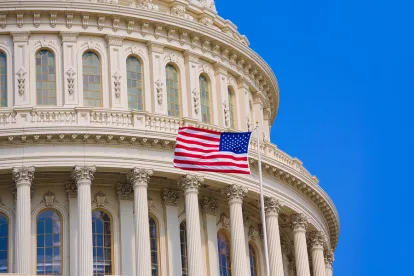Hard on the heels of the muckle of anti-trust filings against the huge U.S. technology companies in the past few months, the United States Senate indicates that clamping down on Big Tech will be a priority for the new majority. A bill submitted last week sketched a new direction in anti-trust law aimed squarely at the Silicon Valley and Seattle corporate giants.
Senator Amy Klobuchar, who is preparing to publish a book this Spring on anti-trust and regulation of the technology industry called “Antitrust: Taking on Monopoly Power From the Gilded Age to the Digital Age,” has just taken her seat as chair of the Senate Judiciary Committee’s Anti-Trust Subcommittee, and prepared to enact her agenda. She plans to introduce a bill directed at limiting corporate monopoly power across the economy, with special inspiration from recent behavior of tech companies. According to the New York Times, the bill includes recommendations from a House judiciary report led by Representative David Cicilline and “Representative Ken Buck, Republican of Colorado and a senior member of the House antitrust subcommittee, said he would work with Democrats on legislation, more hearings and investigations of the tech sector.”
The bill would raise administrative anti-trust penalties from a maximum of $100 million to a maximum of 15% of a company’s annual revenue, which could amount to mountains of penalties for tech companies whose revenues can be tens of billions of dollars. Business Insider writes “The bill would also force large companies to prove any acquisition of a smaller company is above-board, rather than relying on government agencies to prove wrongdoing.” This could make it harder for Big Tech to simply build into their future budgets the cost of likely fines for breaking the law as a cost of doing business.
The goal would be to chill anti-competitive corporate behavior and to catch it earlier in the game to make regulation easier. Tech Crunch writes that not only would the bill put the onus on companies to justify mergers ahead of time, but “Klobuchar’s proposal also seeks to add a provision to the Clayton Act against conduct that puts competitors at a disadvantage — a rule that would address some of the murkier areas of anti-competitive behavior that stretch beyond outright mergers and acquisitions. Citing lacking enforcement budgets, the bill also sets out a $300 million infusion for the Justice Department’s antitrust division and the FTC. At the FTC, that money would help create a new division within the agency for research on markets and mergers.”
Klobuchar explained some of the reasons for these actions in her keynote speech at the State of the Net Conference: "While we've seen this enormous change in our economy, we really are not as sophisticated as the companies that we should be regulating. We need to start by working to strengthen antitrust enforcement and making it more effective."
Given that in 2020 the tech industry likely spent the most lobbying money of any industry, with Facebook and Amazon both announcing more than $18 million spent, we can expect significant limitations on these companies will meet serious opposition. Democratic lawmakers are feeling pressure from the left, who have long advocated for more active control of the tech giants. But the January 6 seditious attack on the Capitol and its aftermath angered both sides of the aisle at the power of online media and search companies. The Times reported, “Democrats are angry that Facebook, Twitter and YouTube allowed President Donald J. Trump and far-right groups to spread disinformation about the election that led to the riot. Republicans are motivated by the decisions of the platforms to bar Mr. Trump and his far-right supporters.” So both sides seek to impose limitations for differing reasons.
Despite the anti-trust bill’s exclusively Democratic sponsorship, Klobuchar expects some Republican support. Senator Josh Hawley has already introduced legislation to prohibit large tech companies from buying smaller businesses. “You can’t take down trillion-dollar companies with duct tape and Band-Aids,” Klobuchar was quoted as saying. Introducing her bill last Thursday, Klobuchar said "While the United States once had some of the most effective antitrust laws in the world, our economy today faces a massive competition problem. We can no longer sweep this issue under the rug and hope our existing laws are adequate.”




 />i
/>i
